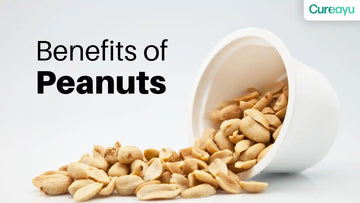Bananas are one of the most popular and versatile fruits worldwide, known for their natural sweetness, portability, and nutrient-rich profile. However, for diabetics, the naturally occurring sugars and carbohydrates in bananas raise concerns about how this fruit might impact blood glucose levels. Managing diabetes effectively involves carefully selecting foods that help stabilize blood sugar without causing rapid spikes, which prompts the question: Can diabetics eat bananas safely?
Although bananas contain natural sugars, they are also packed with beneficial nutrients, fiber, and antioxidants, which may support overall health. This blog delves into the relationship between bananas and diabetes, discussing how bananas can fit into a diabetic-friendly diet, and examining their nutritional profile, benefits, and the best ways to consume them without affecting blood sugar levels.
Also Read: Understanding the Sweetness: Natural Sugar vs. Added Sugar - How to Make Healthier Choices
Banana and Diabetes: How They Impact Blood Sugar Levels
For diabetics, foods with a high glycemic index (GI) can cause rapid increases in blood glucose levels, making blood sugar management more challenging. Bananas have a moderate GI, which means they generally cause a gradual rise in blood sugar levels instead of a sudden spike. However, the GI of a banana can vary based on its ripeness; ripe bananas have a higher GI than green, unripe bananas. Diabetics may benefit from choosing bananas that are slightly green, as they contain more resistant starch, which slows digestion and reduces the impact on blood sugar.
Moreover, bananas are rich in dietary fiber, specifically pectin and resistant starch, which play a role in regulating blood sugar by slowing down digestion. This slow-release of sugar makes bananas more manageable for diabetics than foods high in refined sugars.
Nutritional Value of Banana
|
Nutrient |
Amount (per medium banana) |
|
Calories |
105 |
|
Carbohydrates |
27g |
|
Sugars |
14g |
|
Fiber |
3g |
|
Protein |
1.3g |
|
Fat |
0.3g |
|
Vitamin C |
10.3mg |
|
Potassium |
422mg |
|
Magnesium |
32mg |
|
Vitamin B6 |
0.4mg |
Is Banana Good for Diabetes?
Bananas can be a good addition to a diabetic diet when consumed in moderation. While they contain natural sugars and carbohydrates, they also offer a range of nutrients that benefit health, especially for diabetics. The fiber in bananas aids digestion and helps control blood sugar spikes, while potassium and magnesium support heart health. Bananas also contain vitamin B6 and vitamin C, both of which help with immune function and inflammation reduction.
However, portion size is essential. Eating a large banana may lead to a bigger blood sugar increase than a smaller one. Diabetics should aim to consume bananas in moderation and pair them with foods that contain protein or healthy fats to balance the glycemic response.
Also Read: How To Reduce Sugar Level Home Remedies: Natural Ways to Manage Blood Sugar
How to Include Bananas in a Diabetic Diet
To enjoy bananas without affecting blood sugar levels significantly, diabetics can use these strategies:
- Pair with Protein or Healthy Fats: Combining bananas with protein-rich foods, like Greek yogurt, nuts, or a spoonful of almond butter, helps prevent rapid blood sugar spikes.
- Choose Smaller or Less Ripe Bananas: Opting for smaller bananas or slightly green ones can help keep the glycemic load lower.
- Monitor Blood Sugar Response: Since individual responses to food can vary, diabetics should test their blood sugar levels before and after eating a banana to understand how it affects them.
- Included in Smoothies with Greens: Adding half a banana to a green smoothie with spinach, cucumber, or kale, along with some protein powder, can create a balanced, low-GI snack that’s filling and nutritious.
- Slice Banana into Oatmeal: For a fiber-rich breakfast, add a few banana slices to unsweetened oatmeal, which can help slow down the absorption of sugar from the banana.
Benefits of Eating Bananas for Diabetics
Eating bananas in moderation can provide the following health benefits for diabetics:
- Heart Health Support: Potassium and magnesium in bananas support cardiovascular health, which is essential for diabetics at higher risk for heart disease.
- Improved Digestive Health: Fiber in bananas promotes healthy digestion, helps relieve constipation, and contributes to overall gut health.
- Enhanced Energy Levels: Bananas provide natural energy due to their carbohydrate content, making them a good snack option without added sugars.
- Rich in Antioxidants: Bananas contain antioxidants like dopamine and catechins, which help fight oxidative stress and inflammation, common concerns for diabetics.
- Weight Management Aid: Fiber and resistant starch can help diabetics feel full longer, reducing cravings and potentially supporting weight management, which is beneficial for blood sugar control.
Also Read: Discover the Incredible Jaggery Benefits: Your Natural Sweetener
Precautions for Diabetics When Eating Bananas
To enjoy bananas safely, diabetics should keep the following precautions in mind:
- Monitor Portion Sizes: Larger bananas contain more carbs and sugars, so diabetics may want to choose smaller bananas or only eat half at a time to better control blood sugar.
- Avoid Overripe Bananas: Overripe bananas have higher sugar content, which can lead to a quicker blood sugar rise. Opt for bananas that are slightly green for a lower GI effect.
- Combine with Low-GI Foods: Pair bananas with foods low on the glycemic index, such as nuts, seeds, or plain yogurt, to balance blood sugar impact.
- Consider Banana Timing: For some diabetics, eating bananas earlier in the day may be better as the body’s insulin sensitivity is higher, allowing for better blood sugar control.
- Consult with Your Doctor or Dietitian: If you’re following a specific diet plan or unsure of how bananas will affect your blood sugar, consult a healthcare professional for personalized guidance.
Additional Tips for Eating Fruits as a Diabetic
- Focus on Whole Fruits: Whole fruits, like bananas, are generally better for diabetics than fruit juices, as they retain fiber and have a lower glycemic load.
- Mix Fruits with High Fiber Options: Pairing fruits with high-fiber foods, such as chia seeds or whole-grain crackers, helps slow down sugar absorption.
- Limit Fruit Portion Sizes: Stick to one serving size of fruit per meal, as too much fruit at once can impact blood sugar levels significantly.
Conclusion
Bananas can be a healthy part of a diabetic-friendly diet if consumed in moderation and with careful planning. They provide essential nutrients such as potassium, vitamin B6, and fiber, which can benefit diabetics by supporting heart health, digestion, and blood sugar management. However, portion size, ripeness, and pairing bananas with protein or healthy fats are crucial to minimizing any adverse effects on blood sugar levels. Eating smaller, less ripe bananas, or combining them with other nutrient-dense foods, allows diabetics to enjoy this nutritious fruit without jeopardizing their blood glucose control. Incorporating bananas responsibly into a diabetic diet not only adds variety but also brings a natural source of energy, antioxidants, and other health benefits. Monitoring your body’s response and consulting with a healthcare provider can help ensure that you’re managing your blood sugar while still enjoying the nutritional advantages of bananas.












